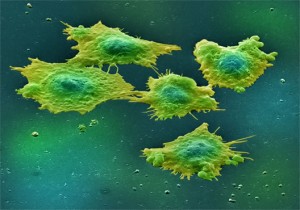 Ten or so years ago when I started my career (if thus it can be called) in healthcare research I have to admit I’d never heard of the concept of stem cells – let alone stem cell therapy.
Ten or so years ago when I started my career (if thus it can be called) in healthcare research I have to admit I’d never heard of the concept of stem cells – let alone stem cell therapy.
But over the years reading patient blogs and social media I began to realise that there was a sort of “underground” buzz about such therapies. Indeed when trawling around the web the two most common words associated with stem cell therapies seemed to be “controversial” and “breakthrough”. So I decided to investigate more.
In fact I discovered that I had heard of stem cell therapies. Bone marrow transplants (a type of stem cell therapy) have been in use for decades. Showing, at least, there must be something in it.
This leads me, neatly, to the point to this blog. What does stem cell therapy actually mean for us as healthcare users and why, if it is a breakthrough, should it be so controversial?
Well let’s start with the first question. Stem cell therapy is where doctors introduce adult stem cells into damaged tissue which in turn helps to treat an injury or disease. Simple, I hear you cry!
So what is a stem cell? You have to sift through a lot of waffle on the internet to find out the answer but, in a nutshell, they are cells which have the ability to become other cells. They are a sort of “mother cell” which is not directly linked to a specific bodily function but can turn into, say, blood or bone cells. In scientific parlance stem cells are undifferentiated cells as opposed to say muscle cells which are referred to as differentiated.
These stem cells are often cultivated in a lab and then transplanted to the host/patient as a treatment. The cells may help generate new cells which can affect a cure. One example is that stem cells may be used to kick start insulin production in the pancreas as a way of treating T1 diabetes.
While bone marrow transplants are now common; other uses of stem cells are still to some extent in the future. Some scientists see the therapy as the future of treatments for such conditions as cancer (https://patienttalk.org/?tag=cancer), Type 1 diabetes (https://patienttalk.org/?tag=diabetes) , Parkinson’s disease (https://patienttalk.org/?p=208), Celiac disease https://patienttalk.org/?tag=celiac), cardiac failure, muscle damage and neurological disorders such as multiple sclerosis (https://patienttalk.org/?tag=multiple-sclerosis). But only now are clinical trials being conducted so it may take some years. Though in China, among a number of countries, stem cell therapy has reached clinical level i.e. it is being used on patients.
It is quite possible that stem cells may be very valuable for future drug development. It may well be that the testing of new drugs will be on stem cells rather than living creatures.
That being said a number of medical practices offer patients access to stem cell therapy today.
One of the reasons the therapy has been described as controversial is the use or embryonic as opposed to adult stem cells. For many the use of or embryonic stem cells is equivalent to abortion. But it does seem that almost all current research is into adult stem cells.
So where does it leave us? For some it is humans “playing God” while for others it will be the future of medicine.
The reality in my view is somewhat different. In fact we are just embarking on the study of stem cells so in my opinion we still have to wait. As with most things in life the result may not be what we imagine.


